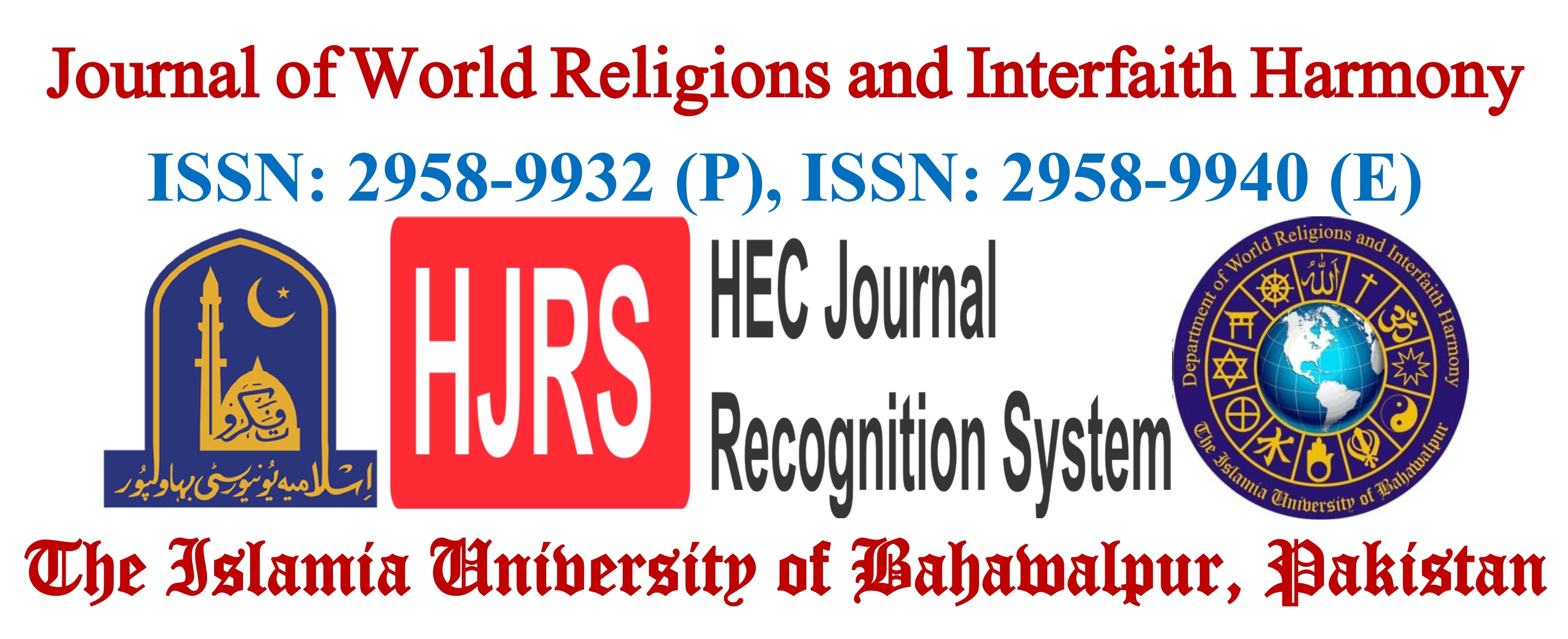The Concept of Prohibited Breeding: A Comparative Study in the Light of Talmud and Islamic Teachings
DOI:
https://doi.org/10.52461/jwrih.v2i2.2314Abstract
Socially, humanity is the creation by the Lord of the Universe to benefit from the various species with which humans are related in different stages of worldly life. Therefore, Allah Almighty has chosen mankind to guide and differentiate about the beneficial and harmful things. He sent messengers to the beings, who informed the Humans about the rules and regulations of Allah Almighty regarding different kinds of water and land, animals and plants, Later, the believers of these entities further explained their teachings and tried to explain the reasons for the benefits and harms of objects and by mixing objects with different attributes together through various experiments. In addition, due to the order to avoid corruption, humanity is prohibited from all such reproductive matters, which tarnish the honor and prohibition of humanity and brutality in humanity. The current research work has been discussing about the Talmudic and Islamic teachings about prohibited breeding. The purpose of this work is to test humanity whether after attaining the blessing of wisdom, whether it leaves behind all the limitations and goes on a temporary life of its own accord, or abides by the limitations and limitations of its master's theory and method. The present study has been organized through primary and secondary sources e.g. Quran, Talmud, Ahadith, books of contemporary age, articles and research papers. It is scholarly admitted that Human Sharia also informs about the rules and regulations related to breeding while supporting efforts to improve the economy. Therefore, a brief review of the Talmud and Islamic laws related to this breeding is carefully mentioned below, so that awareness of the relevance and compatibility of the Islamic and Talmudic laws related to the breeding especially their unique and different points and prohibited methods are brought to the academic globe.
Downloads
Published
How to Cite
Issue
Section
License
Copyright (c) 2023 Saad Jaffar, Dr. Muhammad Waseem Mukhtar

This work is licensed under a Creative Commons Attribution-NonCommercial 4.0 International License.






